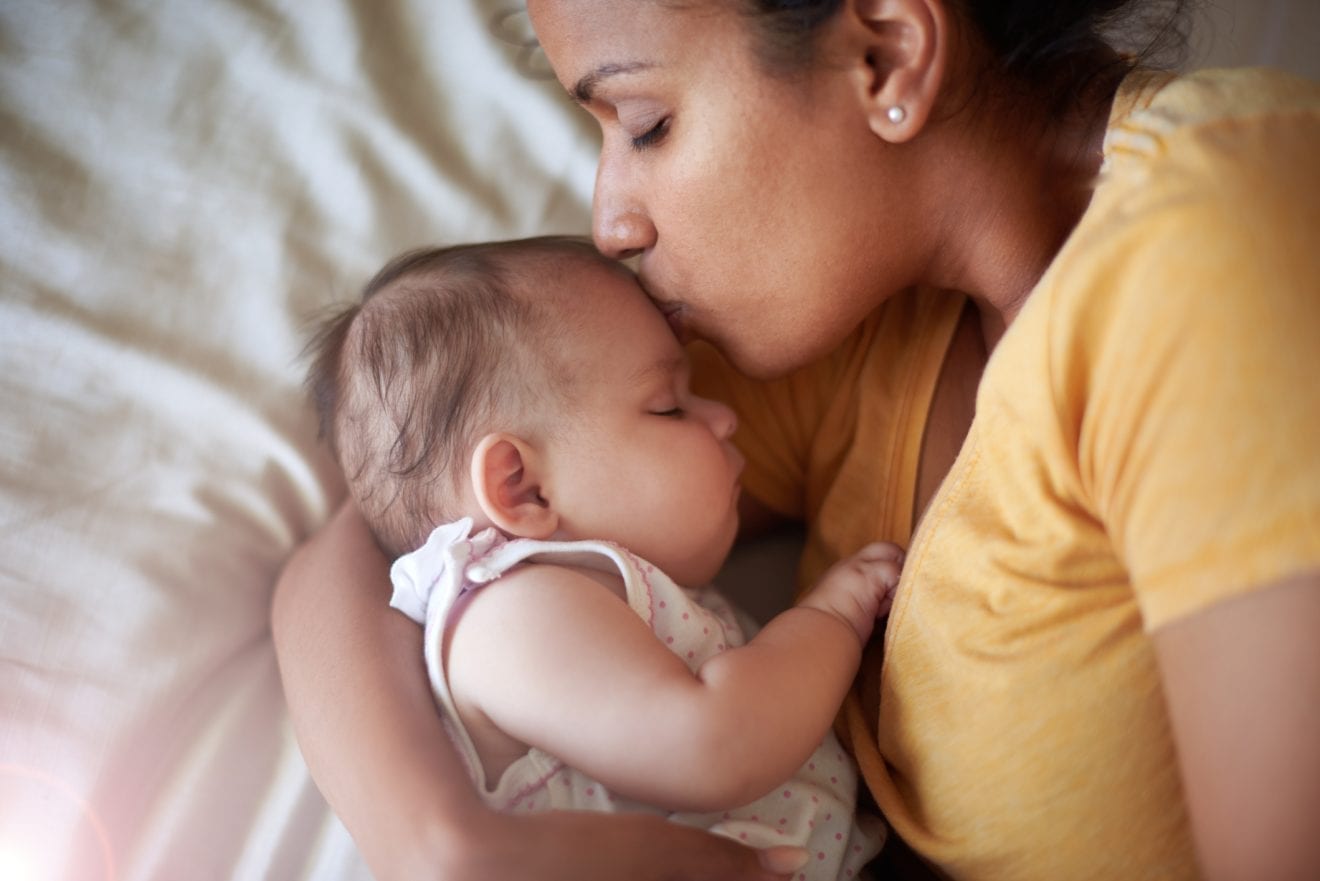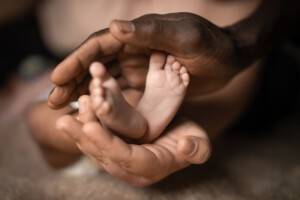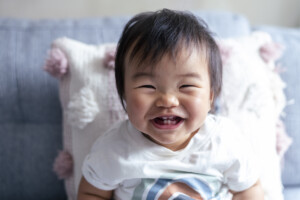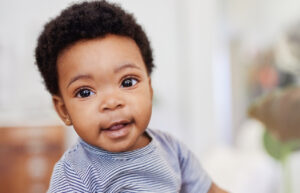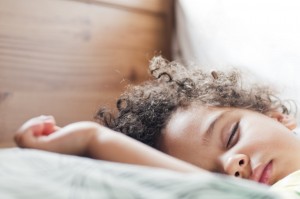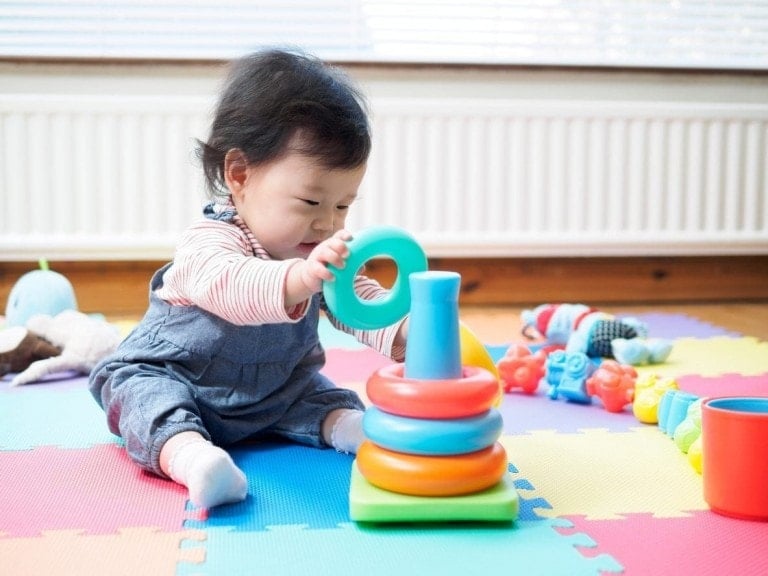When you’re pregnant, you’re inundated with advice, suggestions, and opinions. From everyone. Your loved ones and the cashier at the grocery store. While I’m sure everyone has the best intentions, this barrage of information can be overwhelming. It’s a whirlwind of “You should,” “You’ll want to,” and “You just have to.” Childhood sleep myths and must-have baby sleep products and hard and fast parenting rules. The advice adds up, and it’s easy to get bogged down.
Motherhood is a full-time gig. There is no “part-time” in this role. Whether you’re a stay-at-home mom, a working mom, or somewhere in between, your kids are on your mind 24/7, no matter what else is going on. Therefore, new moms tend to do a lot of research. With access to unlimited data via the internet, Barnes & Noble, or your mother-in-law (the latter having the most to say by a mile), you’ll inevitably be faced with conflicting information.
Today, I want to focus on my area of expertise—sleep! I’m here to dispel some of the more popular childhood sleep myths.
Childhood Sleep Myths: Debunked
I’ve seen these things in parenting forums and mom’s groups or had them angrily shouted at me in all caps in my Instagram DMs.
1. Sleeping Too Much During the Day Will Keep Baby up at Night
This is highly unlikely, except in very extreme cases. Unless your little one sleeps practically all day and is up all night, you probably don’t need to focus too much on limiting their daytime naps. Young infants especially need a ton of sleep. In fact, up until about 6 months, I don’t recommend that your little one be awake for more than 2-2.5 hours at a time. For newborns, that number is more like 45 minutes to an hour.
What keeps babies awake at night is overtiredness more than anything else. You might think that an exhausted baby is more likely to conk out for a full night of sleep than one who slept much of the day. However, it’s just the opposite. We refer to it as being “overtired” because babies have missed the “tired” phase, and their bodies start to kick back into gear, which keeps them from falling and staying asleep. A baby who gets a decent amount of sleep during the day will be less likely to miss this sleep window, and their body will not emit the stimulating hormones produced when overtired.
2. Sleep Is Natural and Can’t Be Taught
Sleeping is natural. Everyone wakes up and falls back to sleep multiple times per night, regardless of age. So, no, you can’t teach a baby to be sleepy or wide awake. However, what can be taught is the ability to fall back to sleep independently.
The typical baby who is a “bad sleeper” isn’t in less need of sleep or more prone to waking up. I’ll say it louder for the people in the back: Your “bad sleeper” is not waking up any more often than your sister’s “great sleeper.” Babies labeled “bad sleepers” have just learned to depend on outside assistance to get back to sleep when they wake. Once your little one has figured out how to get to sleep without the aid of external sources, they start stringing together sleep cycles effortlessly, which is the secret to “sleeping through the night,” as most parents understand it.
3. Babies Will Dictate Their Sleep Schedules
The idea that infant physiology is flawless and naturally programmed to regulate a baby’s schedule is a bit comical. I have nothing against Mother Nature, but she doesn’t provide us with a ready-to-run baby as she does with other animals. Humans are complex mammals and, therefore, have the longest childhood of any other creature.2
Our babies need extensive care and help in their development, and their sleep cycles are unbelievably erratic if left unregulated. Their cortisol production can increase if they miss their natural sleep cycle by as little as 15 minutes. This causes a surge in energy, and things can quickly spiral out of control. As much as I wish babies could fall asleep easily when tired, it simply doesn’t work that way. That’s not to say you shouldn’t rely on their cues, but you shouldn’t rely exclusively on them.
4. Sleep Training Is Stressful for Baby and Can Affect the Parent-Child Attachment
This one makes me very sad. And it’s one of the more popular childhood sleep myths. I have spent my life studying and working in child development and infant mental health and promoting a healthy relationship between child and caregiver. I would never knowingly recommend anything that has the potential to harm this bond. But this isn’t just my opinion. The American Academy of Pediatrics (AAP) published a study in 2016 showing that behavioral intervention (aka “sleep training“) “provide(s) significant sleep benefits . . . yet convey(s) no adverse stress responses or long-term effects on parent-child attachment or child emotions and behavior.” 1 Not a whole lot of grey area there!
If you asked any of the well-rested parents I’ve worked with, they would tell you that their relationship with their child is much better because they are no longer sleep-deprived. When everyone sleeps well, we have more patience, can be more present in our relationships, and have a happier disposition than when we are exhausted.
5. Babies Are Not Designed to Sleep Through the Night
Here again, trusting your child’s newborn physiology to dictate their sleep schedule, eating habits, behavior, or just about any other aspect of their upbringing is a recipe for disaster.
Is your toddler designed to eat a pound of gummy bears in one sitting? No. Will they, if you don’t intervene? 100% yes. Our little ones need our expertise and authority to guide them through their early years (and for decades after that. I know I call my parents at least once a week with an issue I need support with!). Some babies are naturally gifted sleepers but don’t rely on the advice of those who tell you that babies should dictate their sleep schedules. You’re in charge because you know best, even if it sometimes does not feel like it.
Plenty more childhood sleep myths and misconceptions surround babies and their sleep habits. But these are some of the most common ones I hear and some of the most important ones to get the facts straight on. Sleep well!
